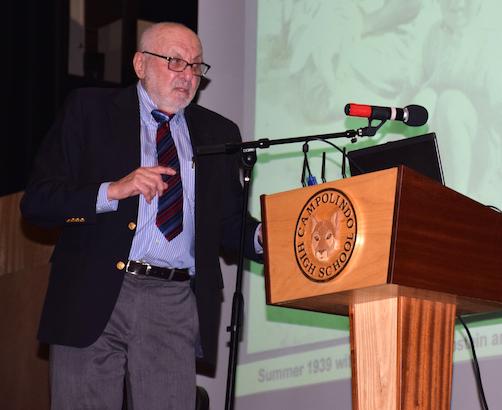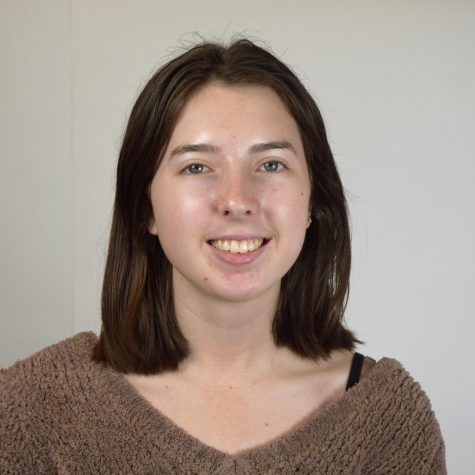Holocaust Survivor Speaks to Freshmen

March 22, 2016
Holocaust survivor Ralph Adams Samuel spoke to World History students on March 9 during 4th period.
Samuel, now 85 years old, was just a child when he fled Nazi Germany. The Kinder Transport program moved thousands of children, including Samuel, from Nazi Germany into foster homes in England. The program was developed in response to the crisis that arose when Canada, America, Australia, and many European countries refused to harbor Jews who were trying to flee persecution. From 1938 to 1940, an estimated 10,000 children were rescued by the program.
Born and raised in Dresden Germany, Samuel was 7 years old in 1938 when his parents sent him to the Epstine family through the Kinder Transport. His family had to put up an equivalent of 250 dollars in order for him to be eligible.
Samuel’s mother was hired as a maid by the same family. His father was not so lucky. He was eventually relocated to the Auschwitz concentration camp, and according to Samuel’s mother, he was murdered there.
In England, Samuel spent several months with the Epstines until he was evacuated to the countryside where he shared a house with 7 other children.
Samuel survived the war.
Samuel eventually attended the London School of Economics, and immigrated to the United States at age 27. In 1962, he moved to California where he worked in public agency real state and for Bay Area Rapid Transit. Since his retirement he has been a member of the JFCS Holocaust Center’s William J. Lowenberg Speakers Bureau. It was this organization that coordinated his visit to campus.
In addition to his speaking engagements in the United States, Samuel has also visited Dresden, where he spoke to students at the high school he would have attended if not for the Holocaust.
Samuel told his audience at Campolindo that the 2001 Oscar-winning documentary “Into the Arms of Strangers: Stories of the Kindertransports,” was the most accurate film or book about the Holocaust to date.
Freshman Katelyn Poole was moved by Samuel’s story and “happy that he’s created a life for himself.”
Samuel’s visit was organized by social studies teacher Diane Bessette. She wanted freshmen to hear a survivor’s story because “it’s important for students to hear from someone who’s experienced history, who’s lived through a really important part of our 20th century history, and because a lot of these people are elderly and won’t be living in probably 10 years or more. It’s important to hear the oral history now while they are still with us.”
